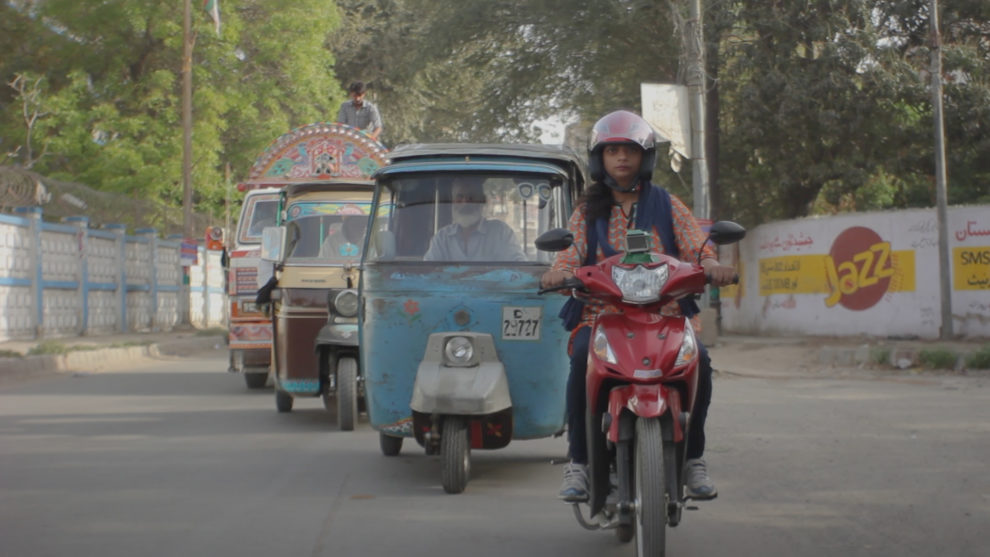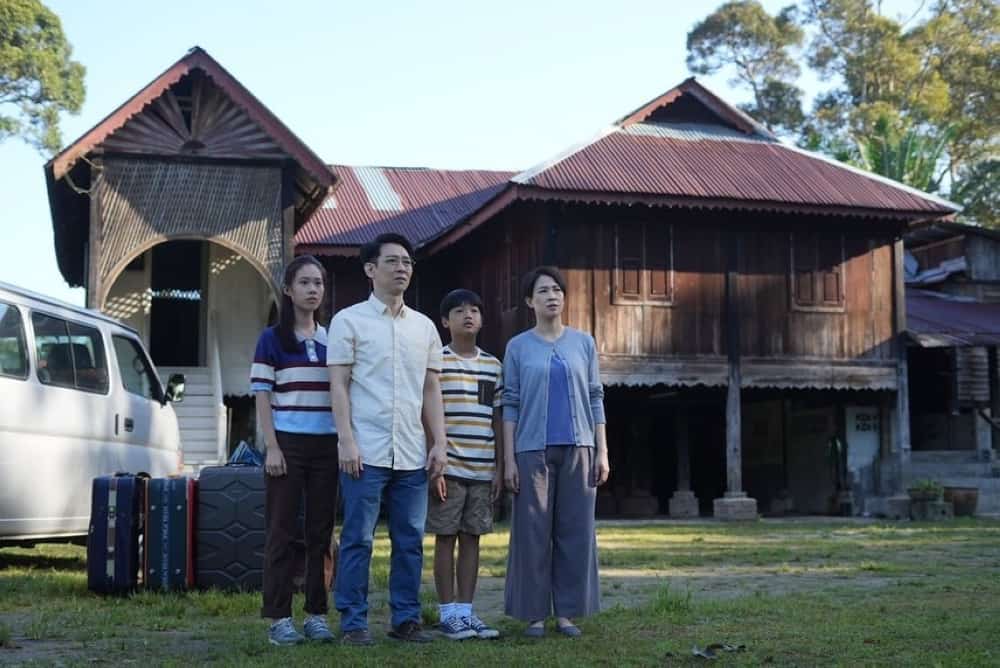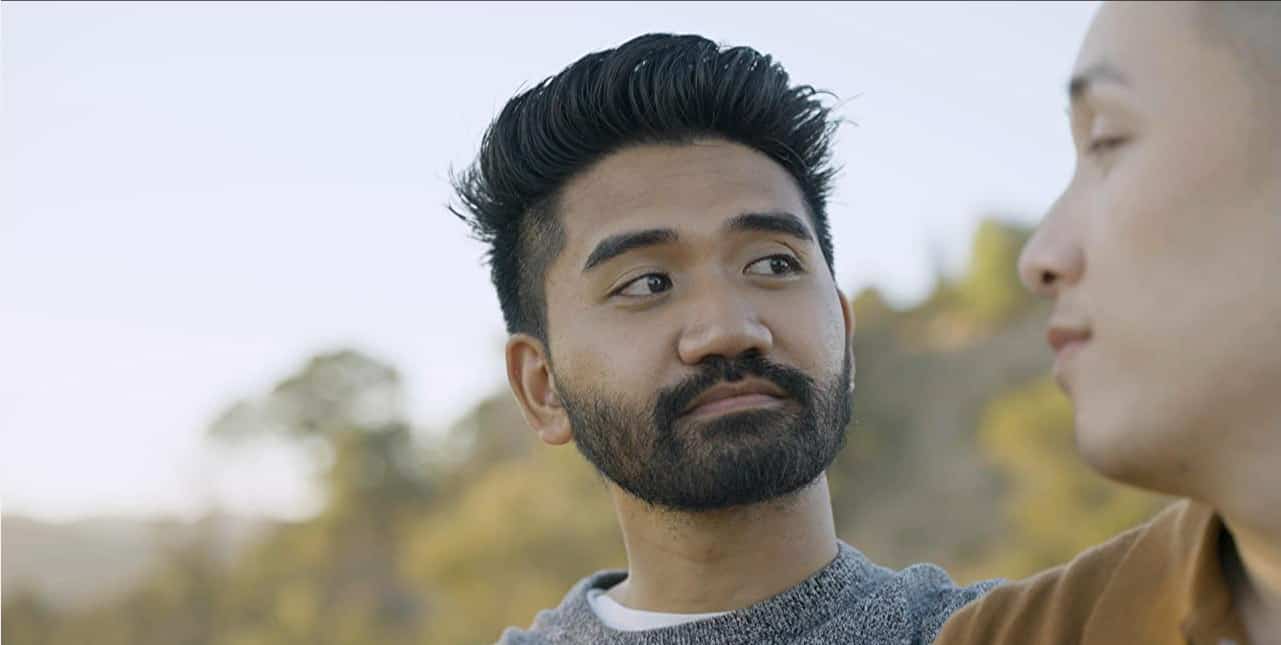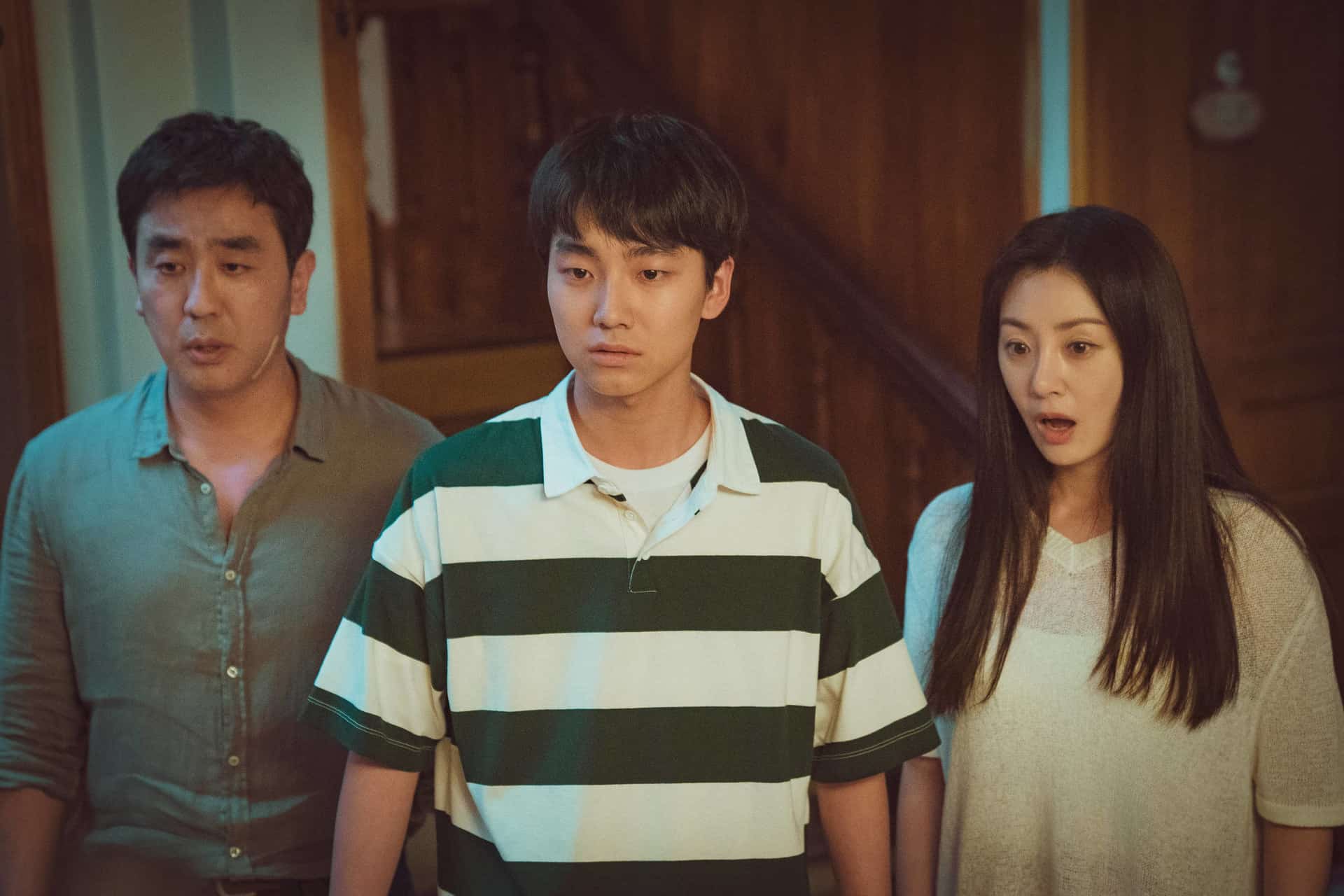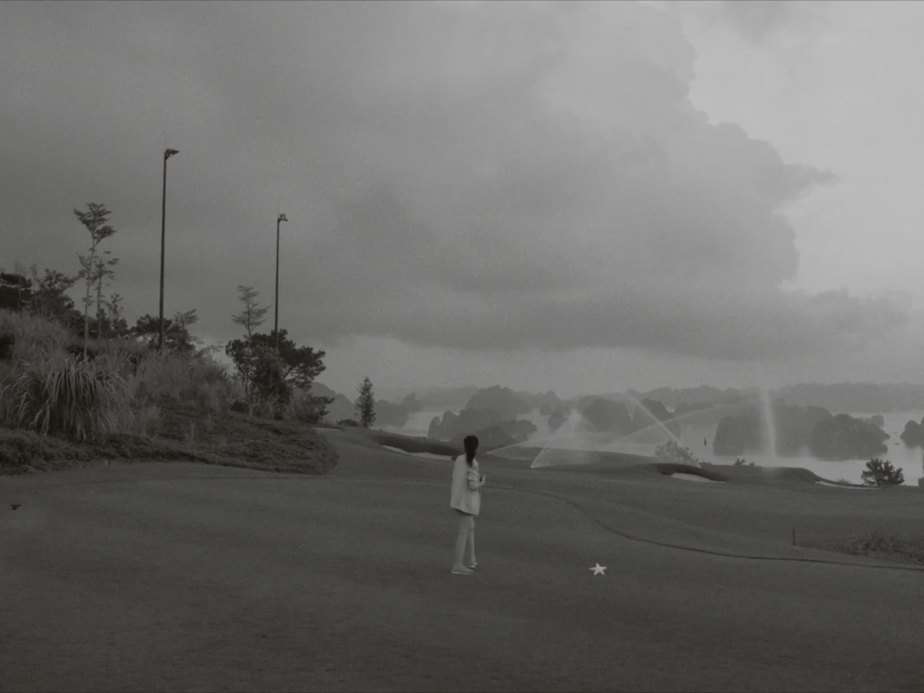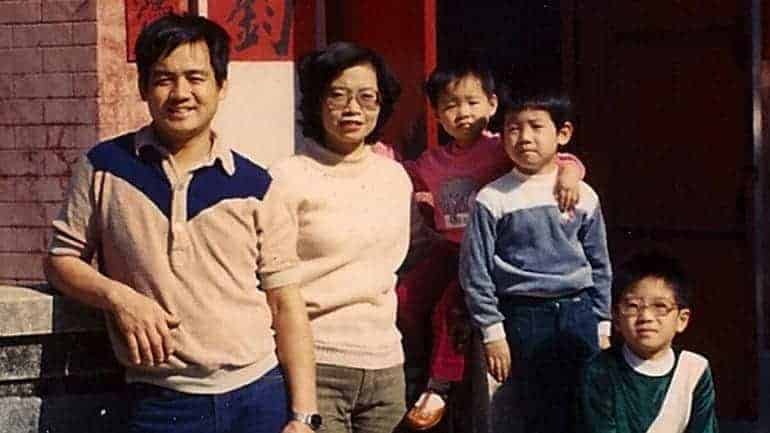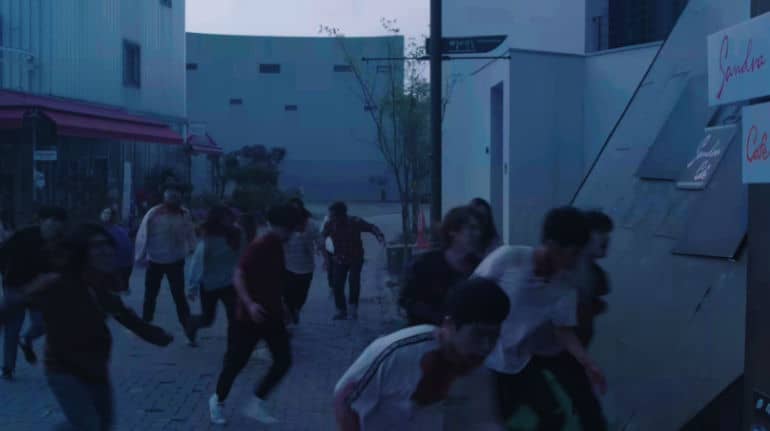By Rwita Dutta
This tiny yet significant short documentary from Pakistan focuses profoundly into the problems women face in terms of daily transportation and how riding a bike provides them with an immense sense of liberation from daily drudgery. The enchanting film deals with motor bikers from Karachi, Pakistan. Only they are not men. The existence of women seems to be quite compromised, being told that public spaces are male-dominated, hence they have to wait to be chaperoned or wait for another day when the sun will be up. In such a situation, riding a motorbike seemed like a farfetched dream, a dream that nevertheless embodied freedom. Whether it's about occupying public domain with desperation or else being molested/abused/raped is a common issue in parts of South Asia. This documentary only shows one aspect of it.
Motorbike, commonly used during the two world wars, emerged as a prominent mode of transport because of its reliability, fuel efficiency and flexibility. It also provides a sense of liberation as well as incites adventurism in human beings. Interestingly, barring a few odds, women are as usual conspicuous by their absence in the history of motorcycles. Whereas the largest manufacturers of bikes are still Asian countries (Japan, India and China) the riders are largely concentrated in one particular gender. South Asia's largely conservative, patriarchal (if not misogynist) society where women are still treated as second class citizens or treated unequally almost everywhere, riding a bike, even in metro cities, is still considered to be a men's game!!
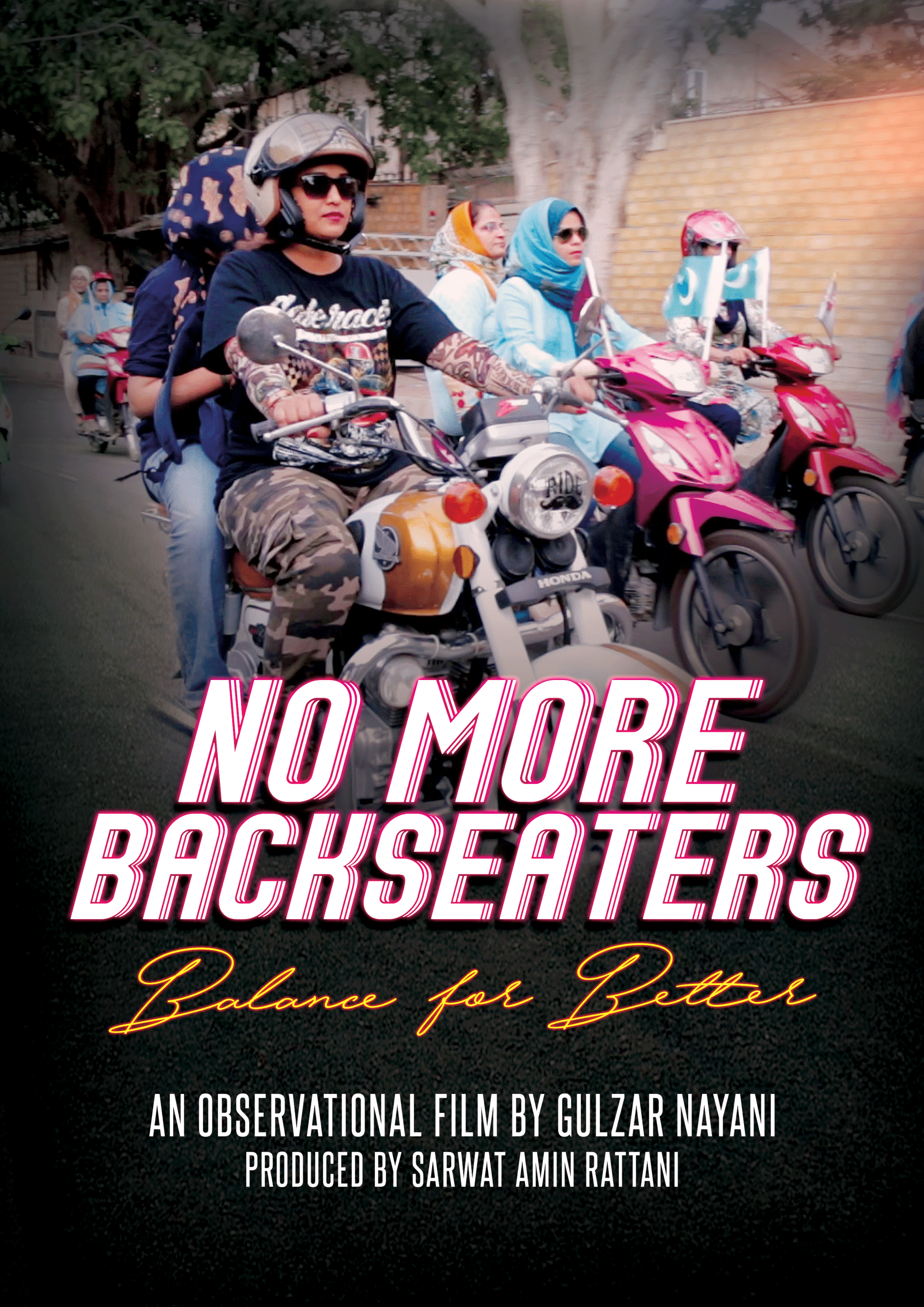
In a city like Karachi, the film concentrates on two women, in their twenties, who, being tired of conventional means of transportation available for women, searched for a convenient and economical transport which led them to their beloved motorbike. Women can be seen sitting on motorbikes astride, behind a male figure. But taking the front seat, straddling and riding a motorbike is a social taboo here. Together, the two protagonists are set towards a journey, trying to figure out whether society is ready to adapt this change.
The camera, in the very first scene, inquisitively, zooms in a girl named Sarwat, riding a scooter, in a traffic signal. Henceforth, the camera follows her and she becomes an obvious object of public gaze. Her journey eventually culminates into an all women motorcycle rally where women are seen to be participant cutting across class, age and inhibitions. They are no more the pillion riders. It's refreshing to watch a bunch of women who have only utilized their vehicles as a mean to their empowerment. They just wanted to commute in the most economical way to their homes, bypassing the daily hustle bustle of a busy metro city. Little they have realized that brick backs will be thrown at them. A society that does not even want to allow their women to walk alone in their two feets, how they are gleefully going to accept their prowess to ride a motorbike?? That seemed insane!!
Women in their motorbikes don't want to compete with their menfolk, or encroach their domain, they just want to claim their own share as human beings. There is Sakina in Burqa, who drives her kids school or does grocery shopping in her bike, who participated in the rally. Also Sumbul who is seen to have been continuously encouraged by her husband. Facilitators like Mehwish and Sanwat Muzzamil have also taken part in it. This is a sign of a bigger movement that shows that change is inevitable and it is in its way.
The film most appropriately ends with a pertinent quotation from Mary Shelly:
“I don't wish women to have power over men
But over themselves”
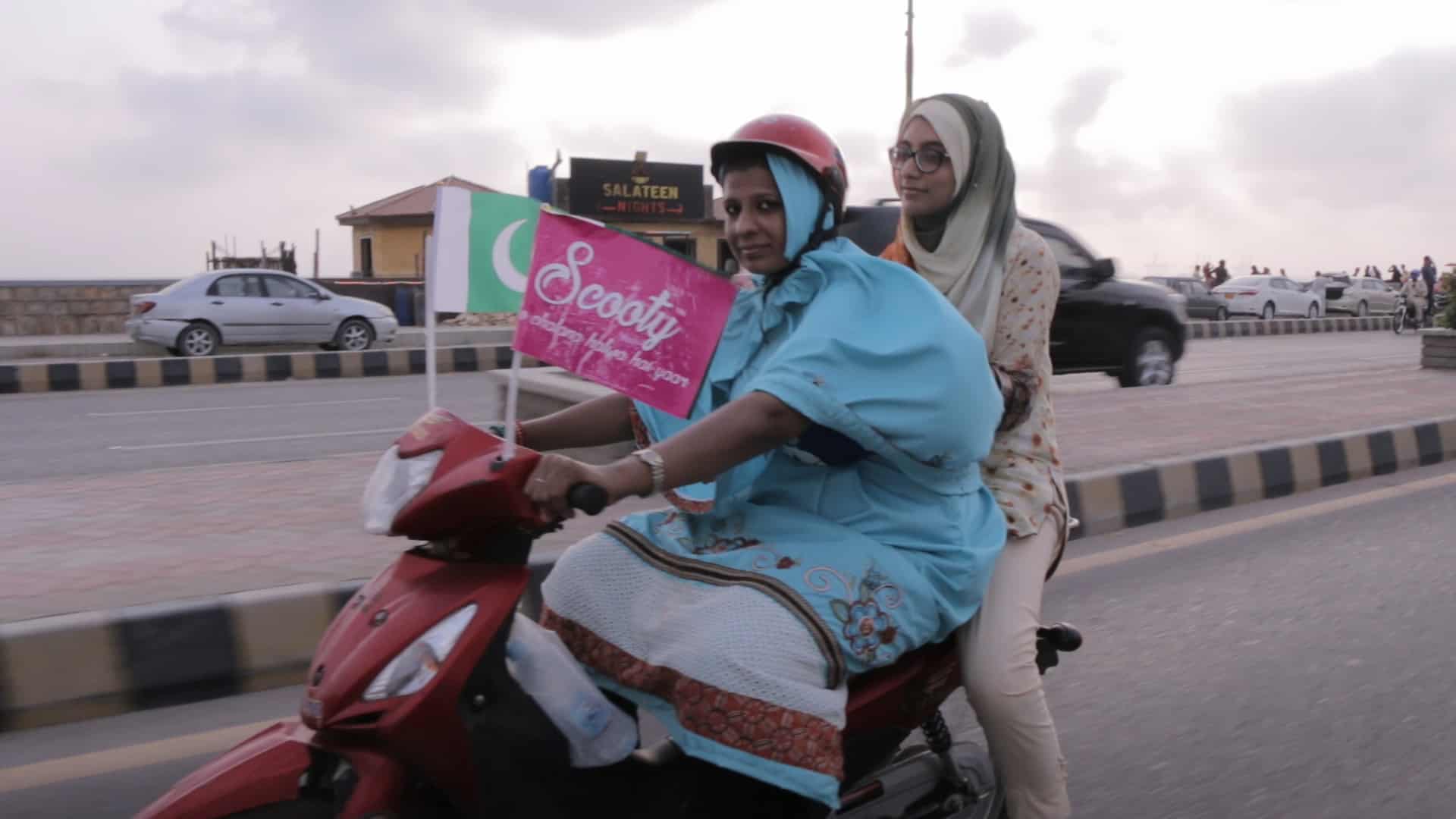
There had been several factors that motivated Gulzar for this documentary. This documentary is an attempt to reclaim public spaces: being a woman, she felt alienated from. Street harassment is something women of different generations have been through and it is very much normalized in the society.
It was actually in August 2016; the director was coming back from a session on a public holiday, there was a huge crowd on the streets and they couldn't find a ride on their way back. They had to walk about 4 kilometres to reach home. That's when she thought, what if she had a bike? A gush of questions appeared henceforth! Would it be even possible? Would the family agree? Is it even safe riding in Karachi? Are more women even interested in this possibility? She came across a Karachi-based research by Arif Hassan and Masood Raza, which gave the figures that 60% of women affirmed they would like to commute on motorbikes independently. Yet again, seeing women riding motorbikes in the city wasn't common. Gulzar became keen to know, why? And started to look for answers within and around her surroundings and started recording. It felt like an unprecedented movement was shaping in front of her eyes, more and more women were taking it up. It felt like a revolution that needed to be documented and preserved. And she did it quite successfully.
The film is doing its festival rounds. It's been featured in the Chalta Phirta Doc Festival, organized by the Documentary Association of Pakistan, in 2020 and receiving rave reviews as the theme is truly motivational. Women in Pakistan are truly being inspired by the film. The kind of feedback Gulzar has received is phenomenal. One girl wrote “When it comes to my riding, besides my need for a self dependent economical life, Gulzar and Sarwat are the ones who motivated me to go for it…..I kept showing my mother their pictures of riding from the page: No More Backseaters (the documentary) until she finally agreed on getting me a scooter……also the experiences of women riding a bicycle is extremely relatable. I started riding it as a means of my basic transport and now I want to develop this thing as a hobby”. Womenfolk, especially, are considering this documentary not only a form of art but also a powerful comment on society.
Gulzar thinks that bike riding in itself provides a kind of joy to her and it is also essential for her to find her identity as a documentary film maker. This particular film acts as a bridge between her two selves. The film is too personal to consider it to be a mere project. It's been an extension of Gulzar's ideology, her agenda.


